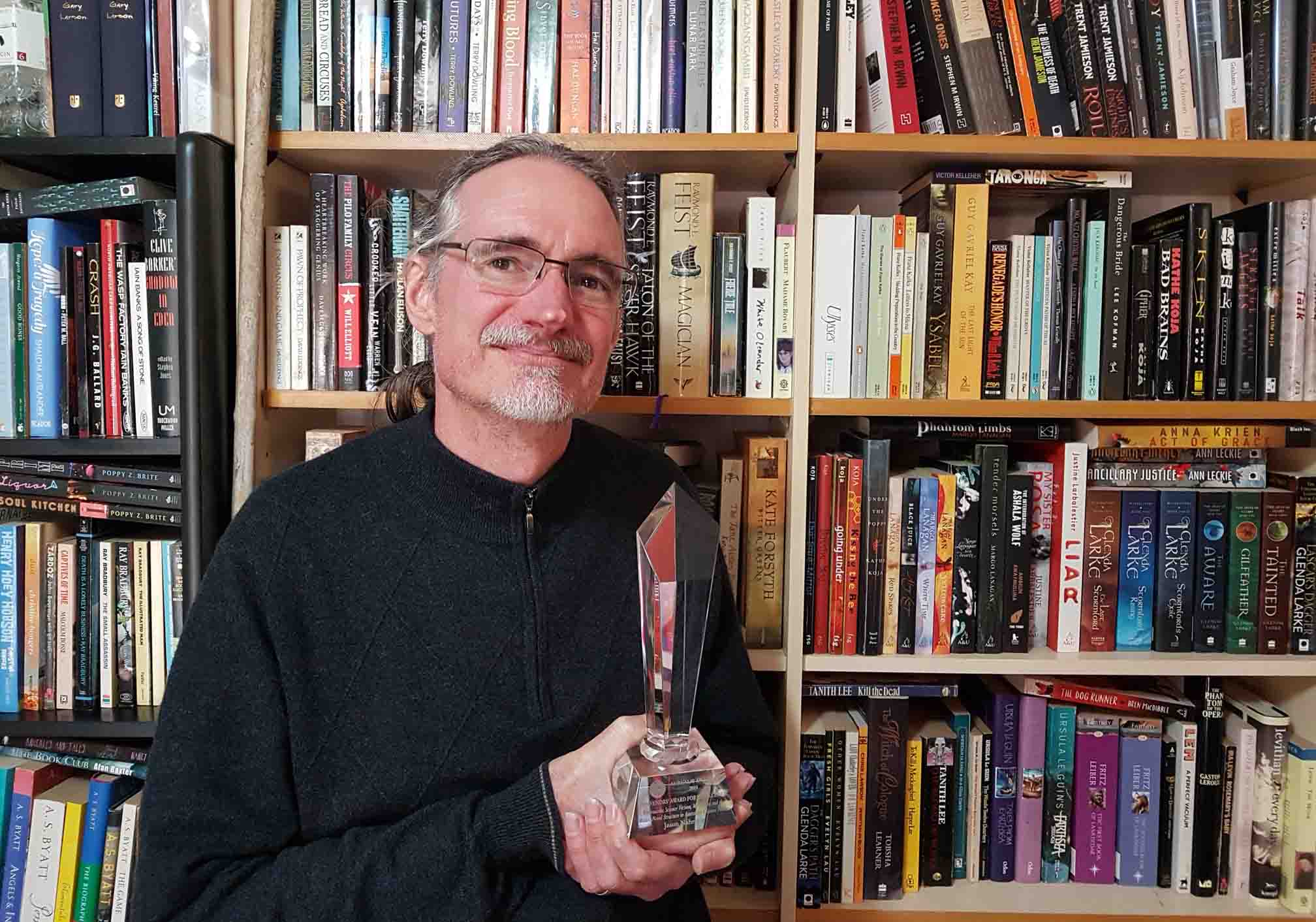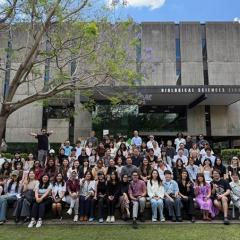Congratulations
Dr Jason Nahrung is a journalist, editor, published writer and UQ Alumnus. In 2019 he completed a PhD in Creative Writing, in the field of climate fiction. He is the author of four novels and more than 20 short stories, all within the speculative fiction field.
Jason is creating change through his writing on climate change and his work exemplifies the important role the humanities have to play in highlighting the big global issues of our time.
His thesis, Watermarks: Science Fiction, Mitigation and the Mosaic Novel Structure in Australian Climate Fiction, was the recipient of the highly prestigious Convenors' Award for Excellence at the recent Aurealis Awards.

Jason's thesis examines the benefits of the application of science fiction approaches and tropes to climate fiction with the aim of breaking down barriers to understanding climate change and adopting mitigation measures. In particular, it looks at mosaic fiction, and examines three Australian texts – Things We Didn’t See Coming (Amsterdam), Clade (Bradley) and Nightsiders (Isle) – as case studies that draw on the mosaic form and science fiction to create affective and effective climate fiction (Academica.edu).
The creative component of his thesis involved a collection of short stories that were mosaic in structure. A couple of these short stories were also published during his studies.
"Watermarks was the trigger story; Stranded Assets, The Today Home and A House in the Blue are other stories in the PhD collection that found a home during the process."
The inspiration behind the work comes from Jason's determination to contribute to the broader conversation on climate change.
On selecting his topic, Jason said, "I think just the fact that climate change is so omnipresent. I wanted to contribute to the discussion about it and to create awareness. Climate change lends itself to social awareness and social justice. Writing is a great avenue to make your feelings known about that," Jason said.
Jason had already completed a Masters in Creative Writing when he decided UQ was the right fit to develop his craft further through a PhD.
"I had an idea for a story, which developed into a bigger piece and I thought it would lend itself beautifully to a doctorate. It was that combination of the right time, topic and project."
On his time at UQ Jason said, "I really enjoyed the UQ PhD process. It was easy to apply for and the university helped you find the right supervisor. The process was laid out so well, I always knew what was expected and when."
He was also quick to thank his two supervisors Dr Venero Armanno and Dr Natalie Collie for their support along the journey.
About the Awards
The Aurealis Awards were established in 1995 by Chimaera Publications, the publishers of Aurealis magazine, to recognise the achievements of Australian science fiction, fantasy and horror writers. The Convenors’ Award for Excellence is awarded at the discretion of the convenors for a particular achievement in speculative fiction or related areas. It can be for non-fiction, artwork, film, television, electronic or multimedia work, or other Australian speculative fiction related work which brings credit or attention to the speculative fiction genres.
For this award, the judges considered the non-fiction element of the thesis only.
An avid viewer of the Aueralis Awards, Jason said that it is becoming more and more common to see thesis works nominated, "It seems that more writers are looking to do Doctorates and Masters to improve their craft and to explore additional job options as well."
"The award is a lovely postscript to a challenging and rewarding endeavour."
Advice for New Writers
As a sucessful writer, we asked Jason to share some tips for students interested in pursuing a career in writing.
"In terms of what to write about, I really think it needs to be about something you are passionate about. Particulary, if it is a long piece, like a novel that you will be spending years on. It needs to be something that will keep you engaged."
Jason also advises against picking a current or trending topic, "It is very possible that the market may change by the time you finish a long work, so I would recommend not just looking at what is currently topical."
"Be realistic about expectations, be patient, perservere, work on your craft and meet other writers – find your tribe of like minded artists."
Future Pursuits
After giving himself a year off after his final submission, Jason is now working on a new short story and novella set in his climate changed version of Brisbane.
"I decided to write about Brisbane because I have lived here for 10 years and it is such a great case study for climate change, its water vulnerabilities and climatic vulnerabilites, lend itself well to the topic."
When asked what he wanted audiences to take from his work on climate change, Jason said, "I want people to realise that it's not too late to do something about climate change. We can all do something, small actions can add up to big actions."

If you are interested in reading more about Jason's other work you can view his website here.
The School would like to once again congratulate Jason on his achievement and looks forward to seeing how he will continue to create change through his writing well into the future.
Story by: Olivia Brown



